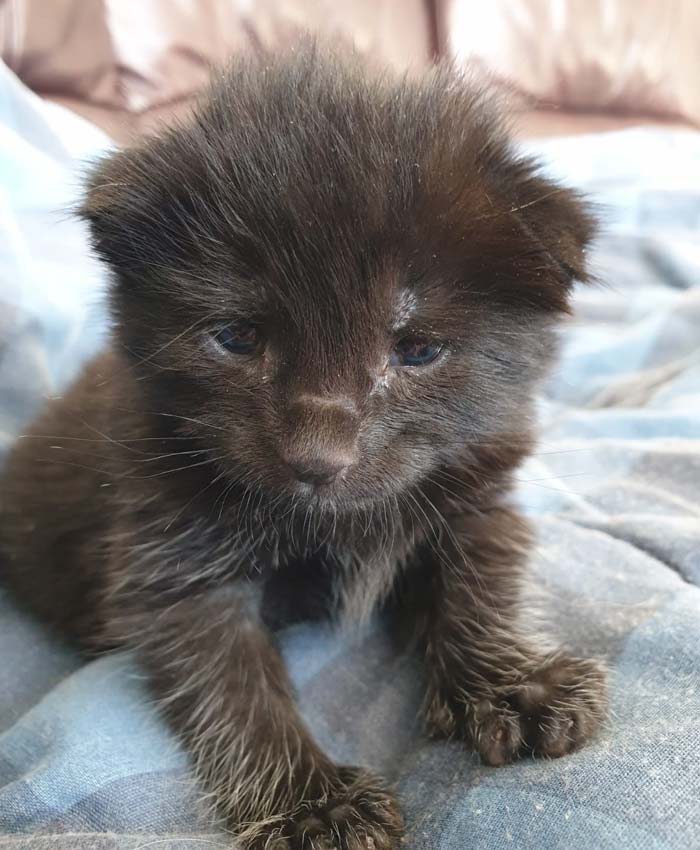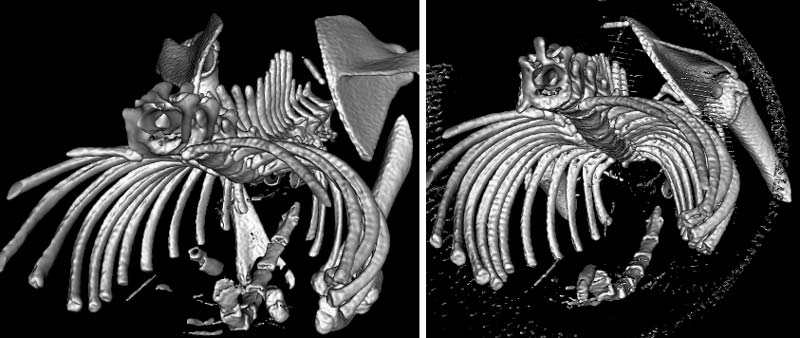7 Sept 2020
A 12-week-old kitten with a rare pectus excavatum defect has been given a new lease of life following surgery at Wear Referrals.

Peanut following his rare, life-changing surgery at Wear Referrals in Bradbury, County Durham.
A kitten found close to death by the roadside has been saved after surgeons at Wear Referrals performed an emergency surgery to correct its severely deformed chest.

The feline was days old when it was discovered by the roadside, lying alongside the dead bodies of its mother and the rest of the litter.
Named Peanut by his rescuers, the tiny kitten was in dire danger as a severe deformity of the chest was compressing his heart and lungs, compromising his ability to breathe and restricting his growth.
Charitable donations paid for Peanut to be treated at Wear Referrals in Bradbury, County Durham, with RCVS and European specialist in small animal surgery Jon Hall taking charge of the challenging case.
Mr Hall said: “Poor Peanut was just eight weeks old when he first came to Wear, and he’d already had a tragic start to life after the death of his mother and the rest of her litter.
“He was also struggling with a severely deformed chest, which frequently left him breathless and unable to cope with any level of activity. If he had not been treated, his deformity – pectus excavatum – would definitely have further limited his ability to breathe and, I suspect, his life expectancy.”
Peanut, a black domestic shorthair, was still 12 weeks old when the intricate, corrective surgery was carried out.
Mr Hall added: “We had to make a splint out of casting material that would fit on to his chest, but still be able to accommodate him growing. We then inserted a series of stitches, carefully manoeuvring our way around the breast bone and the ribs, and taking care that the needle didn’t puncture vital organs such as the heart and the lungs.
“All those stitches then had to be pulled to open up his ribcage and pull his chest into a more normal position, and then be tied to the splint.
“Everything went very well and, as soon as the surgery was done, Peanut was much more active, better able to meow and grew more quickly.”

Peanut’s owner Ashley Wemple, who has worked as a vet nurse since 2001, first saw him when he was taken into the vet practice where she works by the RSPCA at a day old.
She said: “Peanut is doing fantastically now and is definitely one of a kind. He is able to play and exercise just like any other kitten, without any problems.”
Mr Hall has a special interest in understanding the genetics of pectus excavatum, and malformation of the anus and genitals in cats and dogs, to help pets with these problems. He would be pleased to hear from vets and owners of animals with these problems.